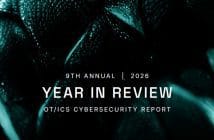
COVID-19 has accelerated the introduction of remote working by at least five years for 62% of organisations in Asia Pacific, according to a new study by Barracuda Networks. This is particularly the case in the legal (75%), human resources (75%), education (67%) and travel & transport (67%) industries.
Conducted by independent research agency Censuswide and commissioned by Barracuda, the Asia Pacific study of 1,055 business decision makers in Australia, New Zealand, Singapore, Hong Kong and India was conducted by Barracuda in July 2020 to gain insights into the current mindset of business leaders about the opportunities and challenges regarding future of work trends resulting from the COVID-19 pandemic.
The study revealed that the mindset of business leaders in the region has now shifted to optimism, with 82% planning to keep remote working in place for employee productivity and business continuity once the pandemic is over for a more flexible and hybrid workplace.
This is a significant shift in thinking among business leaders in Asia Pacific as they realise the positive impact a remote working model has had on overall business productivity. Many have been forced to accelerate their digital transformation and cloud adoption efforts to support this shift, which is putting them in good stead to recover from COVID-19, as well as create a new future for their business.
Despite the positive impact the shift to remote working has had on organisations in the region, it also presents multilateral security challenges, with many organisations not aware of the risks involved in connecting remotely.
COVID-19 has accelerated digital transformation and cloud adoption
According to the study, COVID-19 has been the catalyst for 75% of organisations in Asia Pacific to accelerate digital transformation plans in the next six months to ease the burdens placed on the traditional business model by remote working.
A key component of this transformation is cloud computing. On average, 69% have fast tracked plans to move all data to a cloud-based model, particularly in the IT and telecommunications (81%), manufacturing & utilities (76%) and healthcare (74%) sectors within the region. 74% believe this shift will help reduce overall IT costs to support business growth. The net result is an increase in overall business productivity for 63% of organisations in Asia Pacific since shifting to a remote workforce.
Remote working presents multilateral security challenges
The study indicated that 51% of organisations in Asia Pacific have already had at least one data breach or cyber security incident since shifting to a remote working model, with 49% reporting that employees had experienced an increase in email phishing attacks. 45% of organisations expect an incident to occur in the next month and 61% concerned about unknown threats that will cause business disruption in the next 6 months.
Alarmingly, 46% of organisations in Asia Pacific do not have an up-to-date cybersecurity strategy and solutions in place that cover all the vulnerabilities posed by full-time remote working. This is made more difficult by 63% allowing employees to use personal email addresses and personal devices to conduct company work.
Maintaining safe security practices is essential, but a step easily overlooked in the frantic rush to get everything set up to support remote working. More employees working from home means that more devices are connecting remotely, outside of the secured corporate network. It’s critical to understand what remote workers are doing with data that is rapidly going out of your control and rework the ‘new normal’ to make it more effective and more secure.





